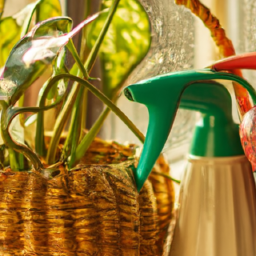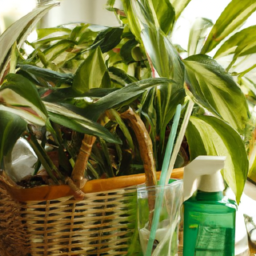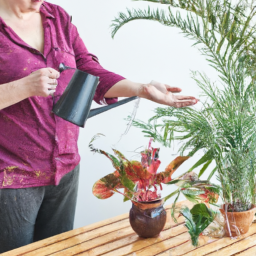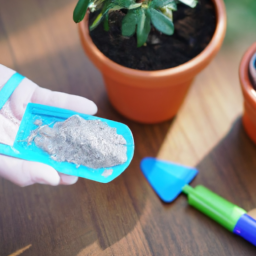
Are you looking to improve your green thumb skills and give your houseplants the care they deserve? If so, you’ve come to the right place! In this blog post, we will discuss all the tips and tricks you need to know to effectively care for houseplants and help them thrive in your home. Whether you’re a seasoned plant parent or just starting out, we’ve got you covered with expert advice and practical strategies to keep your indoor garden looking lush and beautiful. So, grab your watering can and let’s get started on nurturing your beloved houseplants!
Benefits of Proper Care for Houseplants
Introduction
Houseplants are not only beautiful additions to your home decor, but they also offer numerous benefits for your health and well-being. Taking care of your houseplants properly can help them thrive and provide you with a sense of accomplishment. In this guide, we will explore the benefits of proper care for houseplants and provide you with tips on how to keep your indoor greenery happy and healthy.
Improved Air Quality
One of the most significant benefits of having houseplants is their ability to improve indoor air quality. Plants absorb carbon dioxide and release oxygen through the process of photosynthesis, which can help to freshen up the air in your home. Some houseplants, such as spider plants and peace lilies, are also known for their ability to remove toxins from the air, such as formaldehyde and benzene. By taking care of your houseplants and ensuring they have enough light and water, you can help to create a healthier living environment for you and your family.
In addition to purifying the air, houseplants can also help to increase humidity levels in your home. This can be especially beneficial during the dry winter months when indoor air tends to be drier. Plants release water vapor through a process called transpiration, which can help to add moisture to the air and prevent issues such as dry skin and respiratory problems. By properly caring for your houseplants and misting them regularly, you can create a more comfortable and healthy indoor environment.
Another benefit of having houseplants is their ability to reduce stress and improve mental health. Studies have shown that being around plants can help to lower blood pressure, reduce anxiety, and improve overall mood. Taking care of your houseplants can provide a sense of purpose and accomplishment, which can be especially beneficial for those dealing with stress or mental health issues. By creating a relaxing and nurturing environment with your indoor plants, you can help to promote a sense of well-being and tranquility in your home.
Enhanced Home Decor
Properly cared for houseplants can also enhance the aesthetic appeal of your home decor. Indoor plants come in a variety of shapes, sizes, and colors, making them versatile additions to any room. Whether you prefer lush, leafy plants or flowering varieties, there is a houseplant to suit every style and taste. By strategically placing houseplants around your home, you can create focal points, add pops of color, and bring a touch of nature indoors.
In addition to adding visual interest, houseplants can also help to soften the harsh lines of modern architecture and create a more inviting and welcoming atmosphere. Plants can be used to fill empty corners, brighten up dark spaces, and add texture and dimension to your home decor. By choosing the right plants for your space and caring for them properly, you can transform your home into a green oasis that is both stylish and soothing.
Caring for houseplants can be a rewarding and fulfilling hobby that offers a wide range of benefits for your health and well-being. By improving air quality, reducing stress, and enhancing home decor, houseplants can help to create a more comfortable and enjoyable living environment. With a little time and effort, you can enjoy the many advantages of having indoor plants and experience the joy of watching them grow and thrive in your home.

Introduction
Houseplants can bring life and beauty to any indoor space, but they do require proper care to thrive. As an expert in caring for houseplants, I have compiled a list of essential tips to help you maintain healthy and happy plants in your home.
Choosing the Right Plants
When selecting houseplants, it is important to consider the environment in which they will be placed. Some plants require more sunlight than others, so be sure to choose plants that are suitable for the light conditions in your home. Additionally, consider the size of the plant and how much space it will need to grow.
Once you have chosen your plants, be sure to inspect them for any signs of pests or disease before bringing them into your home. It is best to quarantine new plants for a few days to prevent any potential infestations from spreading to your other plants.
Finally, make sure to research the specific care requirements for each plant you bring into your home. Different plants have different watering, fertilizing, and pruning needs, so it is important to understand how to properly care for each plant to ensure its health and longevity.
Proper Watering Techniques
One of the most common mistakes people make when caring for houseplants is overwatering. It is important to water your plants only when the top inch of soil is dry to the touch. Use a watering can with a narrow spout to water directly at the base of the plant, avoiding getting the leaves wet.
When watering, make sure to use room temperature water to prevent shock to the plant’s roots. It is also important to ensure that your pots have proper drainage to prevent water from pooling at the bottom, which can lead to root rot.
During the winter months, when plants are not actively growing, you may need to adjust your watering schedule. Be sure to monitor your plants closely and adjust your watering frequency as needed to prevent overwatering.
Light and Temperature Considerations
Light is essential for plant growth, so it is important to place your houseplants in a location where they will receive adequate sunlight. Most houseplants prefer bright, indirect light, so be sure to place them near a window where they will receive plenty of natural light.
Temperature is also an important factor to consider when caring for houseplants. Most houseplants prefer temperatures between 65-75 degrees Fahrenheit during the day and slightly cooler temperatures at night. Be sure to keep your plants away from drafts and heating vents, as extreme temperature fluctuations can stress the plants.
If you notice that your plants are not thriving in their current location, try moving them to a different spot in your home to see if they do better with more or less light and warmth.

Common Mistakes to Avoid When Caring for Houseplants
Overwatering
One of the most common mistakes that people make when caring for houseplants is overwatering. It can be tempting to water your plants frequently, especially if you want to ensure they are getting enough moisture. However, overwatering can actually be harmful to your plants. When you water your plants too frequently, the roots can become waterlogged, leading to root rot. This can cause the plant to wilt, yellow, and eventually die.
To avoid overwatering your houseplants, it is important to check the soil moisture before watering. Stick your finger into the soil up to your knuckle. If the soil feels dry, it is time to water. If it feels moist, wait a few more days before watering again. Additionally, make sure your pots have drainage holes to allow excess water to escape. This will help prevent water from pooling at the bottom of the pot and causing root rot.
Remember, it is better to underwater your plants than to overwater them. Most houseplants prefer to dry out slightly between waterings, so do not be afraid to let the soil dry out a bit before watering again.
Ignoring Light Requirements
Another common mistake that people make when caring for houseplants is ignoring their light requirements. Different plants have different light preferences, and it is important to place your plants in a location that provides the right amount of light. If a plant requires bright, indirect light but is placed in a dark corner, it will not thrive.
Before purchasing a houseplant, research its specific light requirements. Some plants prefer direct sunlight, while others prefer low light conditions. Place your plants accordingly to ensure they receive the appropriate amount of light. If you notice your plant is not growing or is becoming leggy, it may be a sign that it is not receiving enough light.
If you are unsure about the light requirements of your plants, observe them throughout the day. Plants that require bright, indirect light will do well in a location that receives bright, indirect sunlight for several hours each day. Adjust the placement of your plants as needed to ensure they are getting the light they need to thrive.
Using the Wrong Soil
Using the wrong soil is another common mistake that people make when caring for houseplants. Different plants have different soil preferences, and using the wrong type of soil can hinder their growth. For example, succulents and cacti require well-draining soil to prevent root rot, while tropical plants may require a more moisture-retentive soil.
Before repotting your plants or purchasing new ones, research the soil requirements of each plant. Choose a high-quality potting mix that is specifically formulated for the type of plant you are caring for. Avoid using garden soil, as it can be too heavy and may not provide adequate drainage for your houseplants.
Additionally, consider adding perlite or sand to your potting mix to improve drainage. This will help prevent water from pooling at the bottom of the pot and causing root rot. Remember, the right soil can make a big difference in the health and growth of your houseplants.
Let’s wrap up what we learned
Houseplants are a wonderful addition to any home, bringing a touch of nature indoors and adding beauty to your living space. However, caring for houseplants can sometimes be a bit tricky, especially if you’re new to plant parenting. The key to keeping your houseplants happy and healthy is to provide them with the right amount of sunlight, water, and nutrients.
When it comes to caring for houseplants, it’s important to remember that each plant has its own specific needs. Some plants thrive in bright, indirect sunlight, while others prefer low light conditions. It’s essential to do your research and understand the specific requirements of each plant in your home. Additionally, overwatering is a common mistake that can lead to root rot and other issues. Make sure to water your plants only when the top inch of soil is dry, and always use a pot with drainage holes to prevent water from pooling at the bottom. Finally, don’t forget to fertilize your plants regularly to ensure they have the nutrients they need to grow and thrive. With a little bit of care and attention, your houseplants will flourish and bring joy to your home for years to come.
Common Questions and Answers:
Q1: How often should I water my houseplants?
A1: It depends on the type of plant and its specific needs. Generally, you should water your houseplants when the top inch of soil feels dry to the touch. Overwatering can lead to root rot, so it’s important to not water too frequently.
Q2: What is the best way to provide light for my houseplants?
A2: Most houseplants thrive in bright, indirect light. Place your plants near a window where they can receive sunlight without being directly exposed to harsh rays. If your plant requires more light, consider using a grow light to supplement.
Q3: How do I know if my houseplant needs repotting?
A3: If you notice roots growing out of the drainage holes or the plant becoming root-bound (roots circling around the pot), it’s time to repot. Additionally, if the plant is drying out quickly or not growing as well as before, it may need a larger pot.
Q4: What is the best way to fertilize my houseplants?
A4: Use a balanced, water-soluble fertilizer diluted to half strength and apply it to your houseplants during the growing season (spring and summer). Avoid fertilizing in the winter when plants are dormant. Always follow the instructions on the fertilizer label.
Q5: How can I prevent pests on my houseplants?
A5: To prevent pests, regularly inspect your plants for any signs of infestation such as webbing, yellowing leaves, or tiny bugs. Keep your plants clean by wiping down leaves with a damp cloth and isolate any affected plants to prevent the spread of pests. You can also use natural remedies like neem oil or insecticidal soap to treat infestations.

James Wong is a renowned ethnobotanist, plant scientist, and local television presenter. With a passion for demystifying plant science, he is known for translating complex botanical concepts into practical advice for everyday plant enthusiasts. James’s expertise spans from traditional gardening to cutting-edge plant technologies, making his insights accessible and informative.


